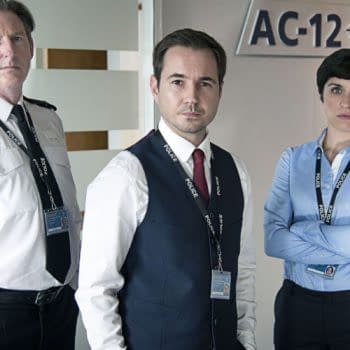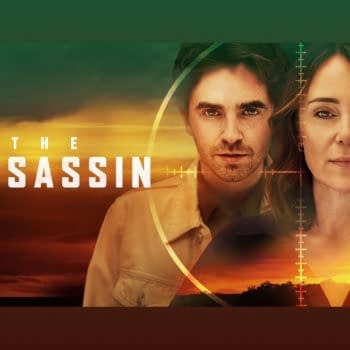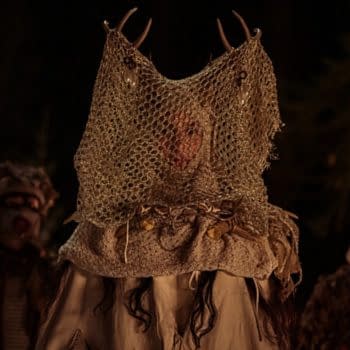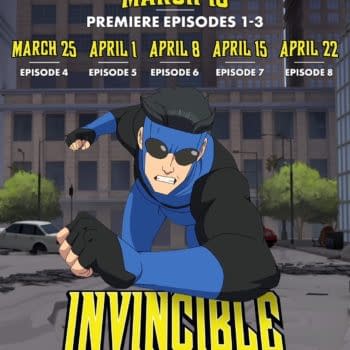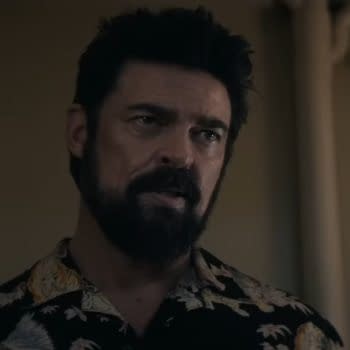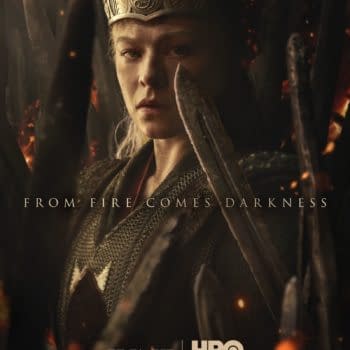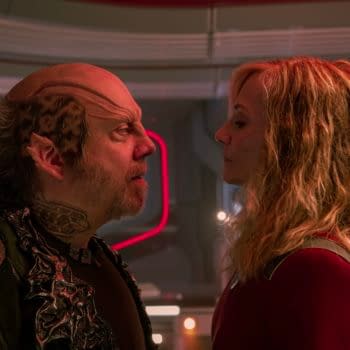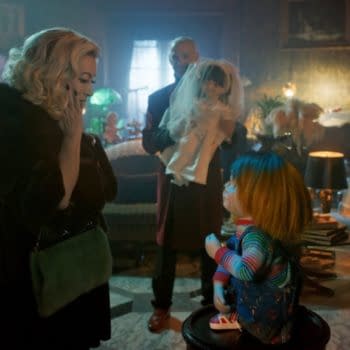Posted in: BBC, TV | Tagged: Adrian Scarborough, Audio Drama, bbc, bleeding cool, cable, ghosts, hauntings, horror, mark gatiss, nigel kneale, radio play, science fiction, streaming, television, The Road, toby hadoke, tv, tv play
The Road: The Legacy of Nigel Kneale's Legendary Lost TV Play Lives On
The Road is a 1963 BBC TV play written by Nigel Kneale that was lost when the BBC, in their infinite wisdom, wiped the videotape to recycle it for further use. It is the same policy that has caused a large number of episodes of Doctor Who and various other classic TV shows to be lost.
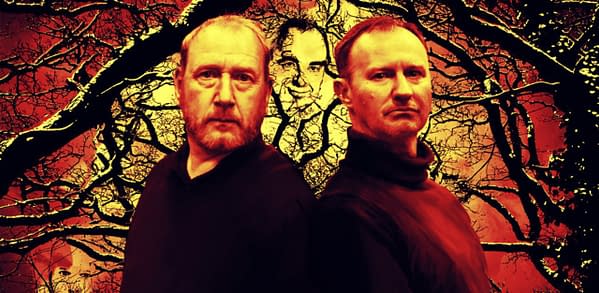
The Legacy of Nigel Kneale: Why are we talking about a lost 45-minute one-off play, you may ask? That's because Nigel Kneale was one of those outlier writers who seemed to effortlessly innovate the Science Fiction and Horror genres without even meaning to. He just came up with a new take on ideas long before they became tropes and conventions of the genre. He was quite ornery and hostile, purporting to hate Science Fiction and genre, turning down offers to write for Doctor Who and Science Fiction shows even as he created four Quatermass miniseries that went on to influence Science Fiction for decades to come. The first Quatermass miniseries was the first adult Science Fiction series on television anywhere in the world. The third, Quatermass and the Pit, introduced the idea that humans were evolved from Martians and carried genetic memories that became translated into myths of the Devil and Hell. There's a good reason he's worshipped by Science Fiction and Horror writers and filmmakers like John Carpenter and Guillermo del Toro these days.
The original TV recording of The Road may be gone, but a new radio drama version exists. Produced by BBC Radio 4, Toby Hadoke adapted the script, and Mark Gatiss and Adrian Scarborough star as the leads, lending it a certain genre cred. It pops up from time to time on the BBC.
The Horror of "The Road": The Road takes place in the English countryside in 1768. Gideon Cobb and Sir Timothy Hassall, a scientist and philosopher, decided to investigate reports of ghostly hauntings in the woods. Local witnesses claim to have seen ghosts and carriages in the woods on a road that never existed. The masterful dialogue is period-accurate as Cobb and Hassall discuss philosophy and belief. It's all very literary and BBC. They interview witnesses at the local inn before they set out to the woods. They're almost smug in their certainty and trust in the scientific method of investigation. Cobb and Hassall believe the visions are of Queen Boudicea and her army fighting the Romans.
Everything leads to the big twist at the end, and it's impossible to discuss why The Road is so significant without spoiling it
The Twist: What they see is families in "obedient" metal carriages on a road that doesn't exist, desperate to get away but the road is packed with too many carriages. They hear the panicked cries of mothers and children, the screams of men before a blinding explosion wipes out the vision. Cobb and Hassall may not know what they're seeing but we do – this is a haunting not from the past but the future. The vision is from our present day. The carriages are cars. The people are families desperate to get away from an impending nuclear strike. The blinding light is the detonation of a nuclear warhead that annihilates all these families in their cars.
Cobb and Hassall don't know exactly what they're seeing but understand what it really is: they're witnessing the end of humanity, the end of the future, the end of everything. It shatters them forever.
In The Road, Kneale was the first writer to ever pose the idea that what if a ghost haunt isn't from the past but the future? You can think of all kinds of explanations for how this can happen: a thermonuclear explosion can disrupt Space-Time and send moments back to the past. Quantum Physics can say that all Time is happening at once but we only experience it in a linear fashion. The Road is also a companion piece to Kneale's 1970s classic TV play The Stone Tape, which suggests that hauntings of the past might be recordings embedded in the stones of old castles and buildings.
Ripples from The Road, Quatermass and the Pit, and The Stone Tape continue to trickle down to horror movies and TV shows these days. M. Night Shayamalan's movie The Village seems to have been influenced by The Road, though its twist is a lot more obvious and less mind-blowing. The final twist of The Road is meant to linger in the mind for a long time. It's more than just a piece in a puzzle. Kneale's major theme has always been to puncture the arrogance of scientific certainty and say that even if you know how the supernatural works, it's not going to save you.
Knowing is not enough. You're still screwed. The Road is currently streaming on the BBC website for the next few weeks.




